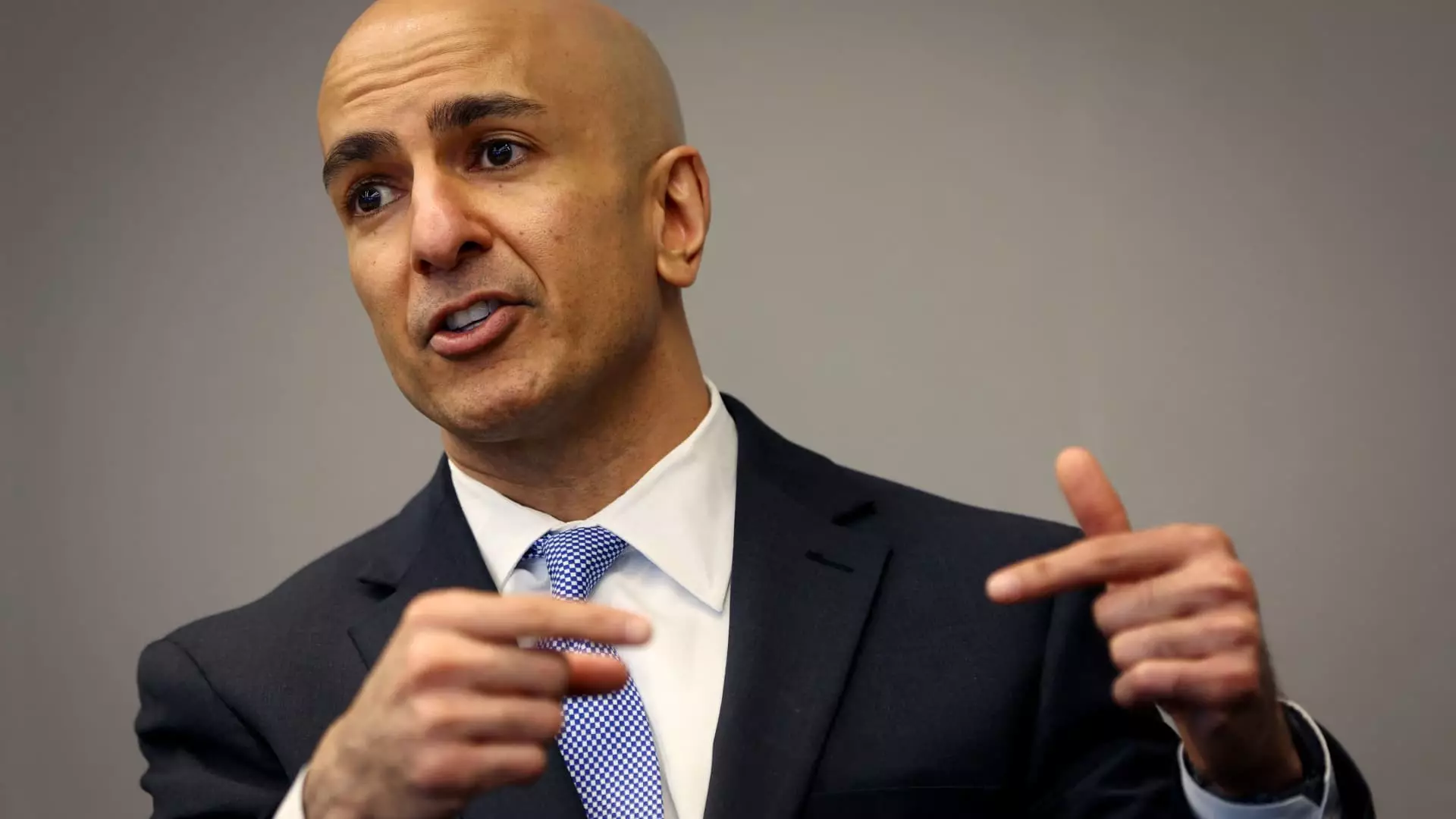The recent comments from Minneapolis Fed President Neel Kashkari expose a troubling trend within the financial establishment: a propensity to downplay the enduring impact of tariffs and inflationary pressures while touting the allure of easy monetary policy. His optimism that tariffs are “likely a one-time effect” betrays a fundamental disconnect from the complex, often unpredictable realities of economic forces. This mentality risks fostering complacency, under the false assumption that short-term trade conflicts can be neatly contained and that inflationary blips will resolve themselves naturally, rather than requiring vigilant management.
Kashkari’s advocacy for multiple interest rate cuts further underscores this hopeful naivety. While the Fed’s decision to implement three cuts signals a dovish stance, it also disregards the deeper structural issues that contribute to inflation. Relying on monetary policy as a cure-all ignores how persistent supply chain disruptions, wage pressures, and global economic shifts continue to challenge the notion of a “controlled” inflation rate. We should question whether such policy easing is a genuine solution or simply a Band-Aid over structural vulnerabilities.
The Illusion of Transience and Its Consequences
Kashkari’s assertion that inflation expectations remain “contained” despite rising consumer prices reveals a dangerous complacency. His hope that housing, wages, and inflation will ease without addressing core economic vulnerabilities overlooks the fact that inflation is often a beast that feeds on itself, especially when fueled by geopolitical tensions and unpredictable trade measures. Hailing the tariffs as “one-time” effects seems more a wishful thinking than a grounded analysis, risking a repeat of history where policymakers underestimated the duration and impact of economic shocks.
Furthermore, the Fed’s reliance on inflation metrics that currently sit above target signals a concerning tolerance for higher prices. If core inflation remains stubbornly elevated, it undermines the credibility of the Fed’s independence and its ability to maintain price stability. Kashkari’s willingness to advocate for rate reductions amid inflation overshoot suggests a dangerously optimistic view that monetary policy can influence broader economic trends without unintended consequences.
Central Banking’s Reckless Optimism: A Recipe for Instability
This episode highlights a broader issue: the tendency of intellectual elites within the central banking community to prioritize short-term stimulus over long-term stability. Their dismissive attitude toward inflation risks and overconfidence in the transient nature of tariffs reflect a fundamental flaw in economic policymaking—namely, a disconnect from reality. This misplaced optimism diminishes the importance of a cautious, balanced approach that considers the myriad uncertainties facing the global economy.
In an era marked by geopolitical upheaval, climate crises, and technological disruptions, placing faith in the superficial stability of managed inflation and interest rates is naive at best. Kashkari’s stance exposes a troubling assumption that markets can be steered through monetary policy alone, ignoring the underlying structural flaws that require more strategic reforms and robust protections for ordinary workers and consumers.
It is precisely this kind of complacency—an unshakable belief that central banks can “smooth out” economic oscillations without addressing their root causes—that risks sowing the seeds for future instability. The central banking approach needs a paradigm shift away from the illusion of control and toward a recognition of economic complexity, imperfect data, and the importance of resilient, inclusive growth strategies.

